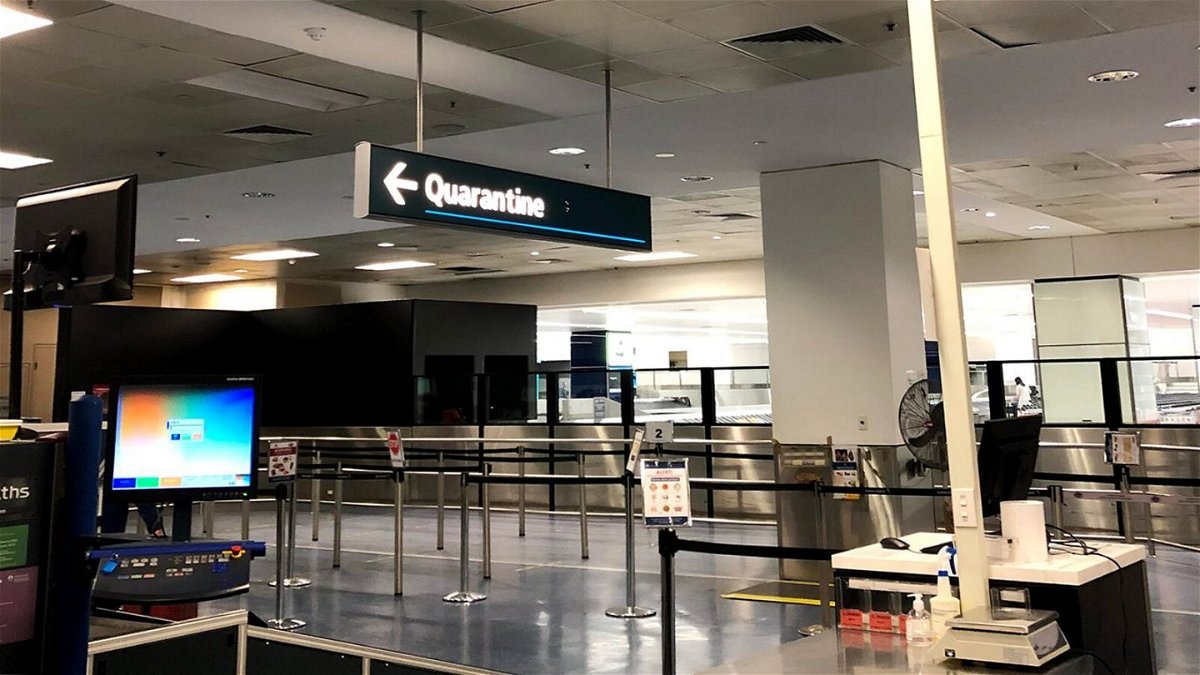Travel to Australia during Covid-19: What you need to know before you go

As one of the countries to have performed better in the pandemic
CNN Staff
If you’re planning a trip to Australia, here’s what you’ll need to know and expect if you want to visit during the global coronavirus pandemic.
The basics
Australia reopened its borders to fully vaccinated tourists on February 21, having previously had some of the most stringent entry regulations on the planet.
However, this doesn’t mean the entire country is a free-for-all. Those border regulations are at a national level. Once you’re in the country, different states and regions have their own regulations. It’s unlikely tourists will get into Western Australia, for instance. See below.
What’s on offer
Are you looking for wild open spaces? World-class beaches? A thrumming food and drinks scene? Australia has all of that in spades. From Uluru to the Sydney Opera House, its icons span the Outback to the cities, sacred spaces to cultural centers. Plus, of course, there’s that laidback, beach-driven lifestyle.
Who can go
Australia opened its borders to fully vaccinated tourists on February 21, although the different states have different requirements (see below).
Entry requirements
All arrivals to Australia, other than those from the countries listed below, must be fully vaccinated — with the final vaccination having taken place more than a week before. A certificate in English must be presented, with the vaccine brand name, dates of vaccination, and passport name and date of birth (or passport number) of the traveler.
They must present a negative PCR test taken within three days of departure, or an antigen test taken within 24 hours of departure, plus a Digital Passenger Declaration. Children under four are exempt from this requirement. Those aged between four and 12 years are treated alongside the adults traveling with them — if the adults are fully vaccinated, the children are treated as such. If they are not, the children are considered unvaccinated.
For details of what must be shown on your test paperwork, see here.
Alternatively, if you have recovered from Covid-19 within the past 30 days, a certificate of recovery may be used instead of a test. See here for the exact requirements.
There are eight countries exempt from the testing rule: Kiribati, Niue, Samoa, Solomon Islands, Tokelau, Tonga, Tuvalu and Vanuatu.
Arrivals from a further 11 countries, including Fiji, Papua New Guinea and Palau, may provide a PCR test taken within 96 hours of departure.
Travelers who present “acceptable proof they cannot be vaccinated for medical reasons” will be treated the same as vaccinated arrivals.
The previous strict quarantine regulations have been dropped at a national level, meaning that individual states and territories must take their own decisions. See “Testing and quarantining on arrival” on this page from the Australian government’s website for details, state by state. Currently, New South Wales requires an antigen test within 24 hours of arrival and take another on or after day six. South Australia’s rules include a PCR test before arrival, another within 24 hours of arrival, and isolation until the result is received. Western Australia is capping international visitor numbers at under 100 per day, and requires them to quarantine for a week.
The other states have simpler testing rules, which are laid out from this page.
US CDC Travel Advisory:
Level 4: Very high. Avoid travel to Australia. There have been 3.1 million cases and 5,095 deaths as of February 24.
Useful links
Our recent coverage
Australia is a country of superlatives. Start with our list of essential places to go, or check out what we think are the most beautiful places in Australia. Are you really into Instagram? You’ll want to visit Perth, and its specially designated Instagram shed.
And if you’re feeling sentimental, here’s a story about a couple who met by chance on Byron Bay.
The-CNN-Wire
™ & © 2022 Cable News Network, Inc., a WarnerMedia Company. All rights reserved.
CNN’s Julia Buckley, Sophie Jeong, Mia Alberti and Angus Watson contributed to this report